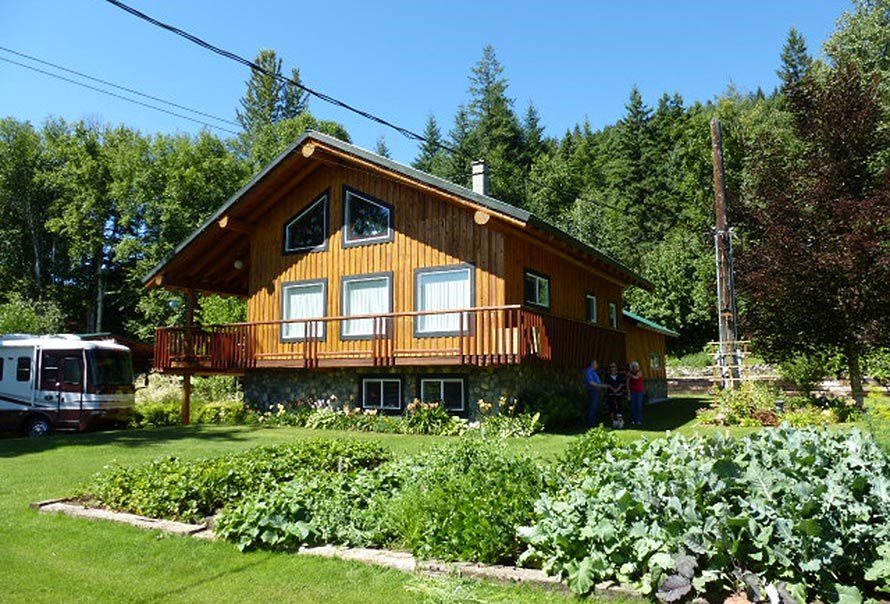Manufactured home parks are offering envious capitalization rates and cash income for park owners, but a series of government measures is making it tougher for those who own the affordable manufactured homes.
“There is strong demand for the parks,” said Bill Summers of Lighthouse Realty Ltd. of Abbotsford, who lists and sells manufactured home parks across B.C. and Alberta.
Summers said cap rates can run as high as 6 per cent in rural areas and around 5 per cent in Kamloops, the Fraser Valley or Vancouver Island. This compares with residential multi-family investments that often have capitalization rates in the 3 per cent range.
Summers said demand for the parks extends from mom-and-pop buyers looking for a retirement investment to real estate investment trusts and pension funds searching for larger parks.
There are also existing park owners hoping to add to their existing portfolios, he said.
The problem is inventory, he said.
“People are hanging on to them,” Summers said, because of the steady cash returns and potential appreciation.
Summers recently sold a 46-unit park on 16 acres near Barriere in the B.C. Interior for $1.95 million and has a sale pending on a 21-pad park in Clearwater, B.C., at $1.18 million.
His listings include an upscale, 17-acre, 142-pad park in the Fraser Valley with an asking price of $8.5 million.
Here are examples of other recent manufactured home park listings, some still active, to give an idea of prices and potential.
- A 34.5-acre park in Fort St. John, with 70 home pads and 14 RV pads, is offered by Klein Group for $3.75 million. It is grossing approximately $340,000 per year.
- A manufactured home park is up for sale in Rock Creek, in B.C.’s Kootenay region. It has 15 pads and a 9.1 per cent cap rate, offered at $549,000 by Klein Group.
- Mt. Sentinel Realty Ltd. has listed Saskatchewan manufactured home park with city services, 53 home pads and 13 RV sites, for $1.65 million.
AFFORDABLE LIVING
Summers said typical tenants in today’s parks are seniors who are selling a conventional urban house and paying cash for a quality manufactured home in a rural community, and often an RV, for retirement.
Such buyers would be paying as little as $300 per month for their pad rental in small towns of B.C. or on the Prairies, and up to $650 per month for pad rentals closer to big cities, he said.
But recent federal mortgage changes and B.C. rent control legislation are taking some of the advantages off the table for those looking to manufactured homes as an affordable housing alternative.
There are approximately 183,000 owners of manufactured homes in Canada and nearly all of them have been banned from accessing refinancing of their mortgaged homes, brokers say.
Last year, the federal government outlawed refinancing for all homeowners with an insured mortgage.
The federal government banned the three main insurers in Canada, Canada Mortgage and Housing Corp. (CMHC), Genworth and Canada Guaranty, from backing any kind of residential refinance transaction.
“As a result of Department of Finance changes, government-backed mortgage default insurance is no longer available for refinancing properties of any type,” explained Jonathan Rotondo, a senior media relations officer with CMHC. “There is nothing in the rules that is unique to manufactured homes – this change applies to all property types.”
“The overwhelming majority of mortgage lenders financing mobile homes [from chartered banks, credit unions or mortgage finance companies] require mortgage insurance. This mortgage insurance is required in just shy of 100 per cent of transactions involving a mobile home,” noted Dustan Woodhouse, a mortgage broker with Dominion Lending Centres in Coquitlam.
The Manufactured Home Park Owners Alliance of BC (MHPOA) adds that a change to rent control legislation also adversely affects both park and individual home owners in B.C.
This is the end of fixed-term leases with move-out clauses. Under this agreement, tenants must either move out or sign a new lease at a reassessed market rental rate, usually higher than the 4 per cent annual rental increases allowed under the Residential and Manufactured Home Park Tenancy Acts.
“By closing this loophole, renters will know they’ll be able to stay in their homes without the threat of skyrocketing rents,” said B.C. Housing Minister Selina Robinson.
“This is not a loophole,” argued Al Kemp, executive director of MHPOA. Kemp noted such agreements are often needed to provide temporary rentals for vulnerable people and for tenants who need to rent only for a short period.



